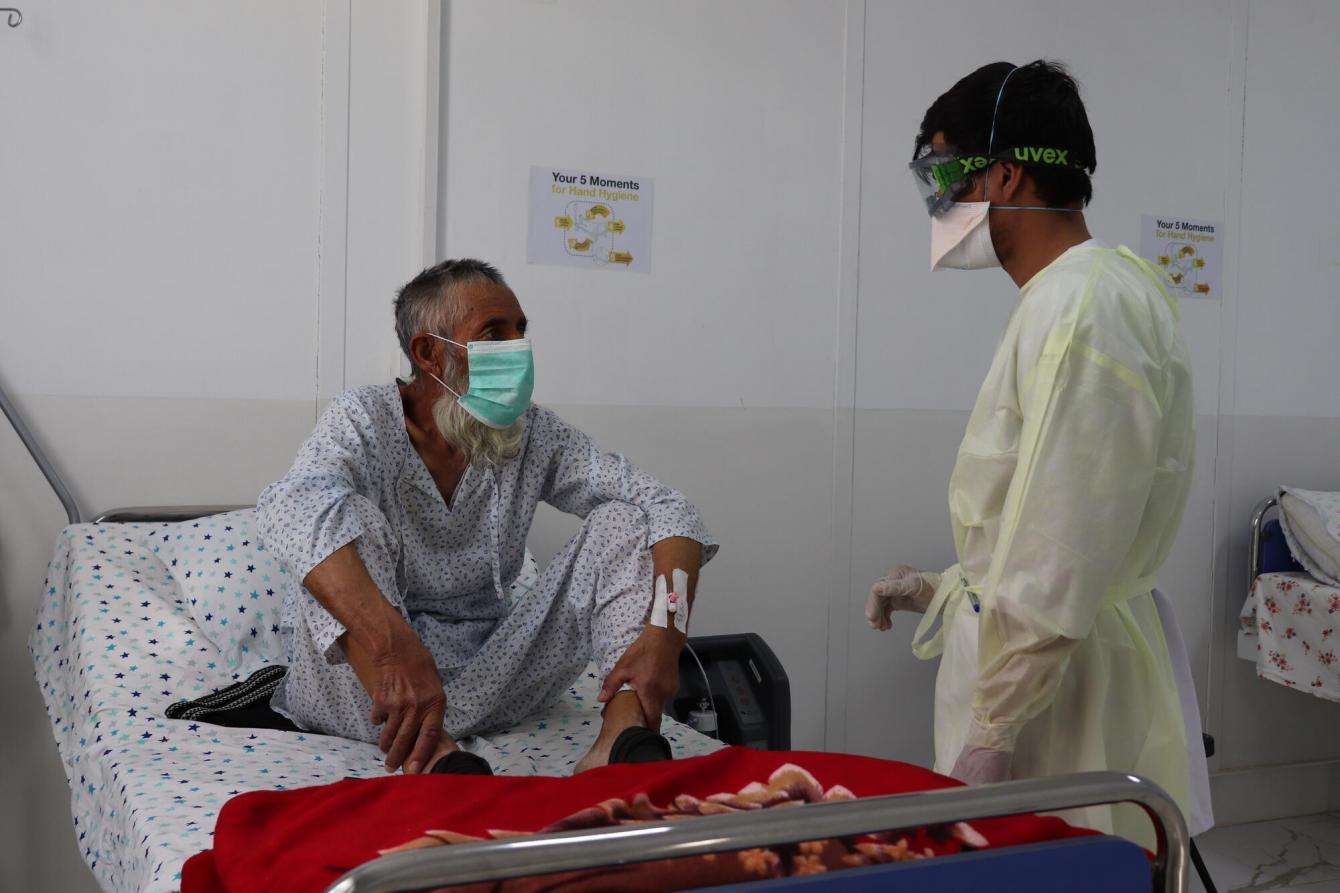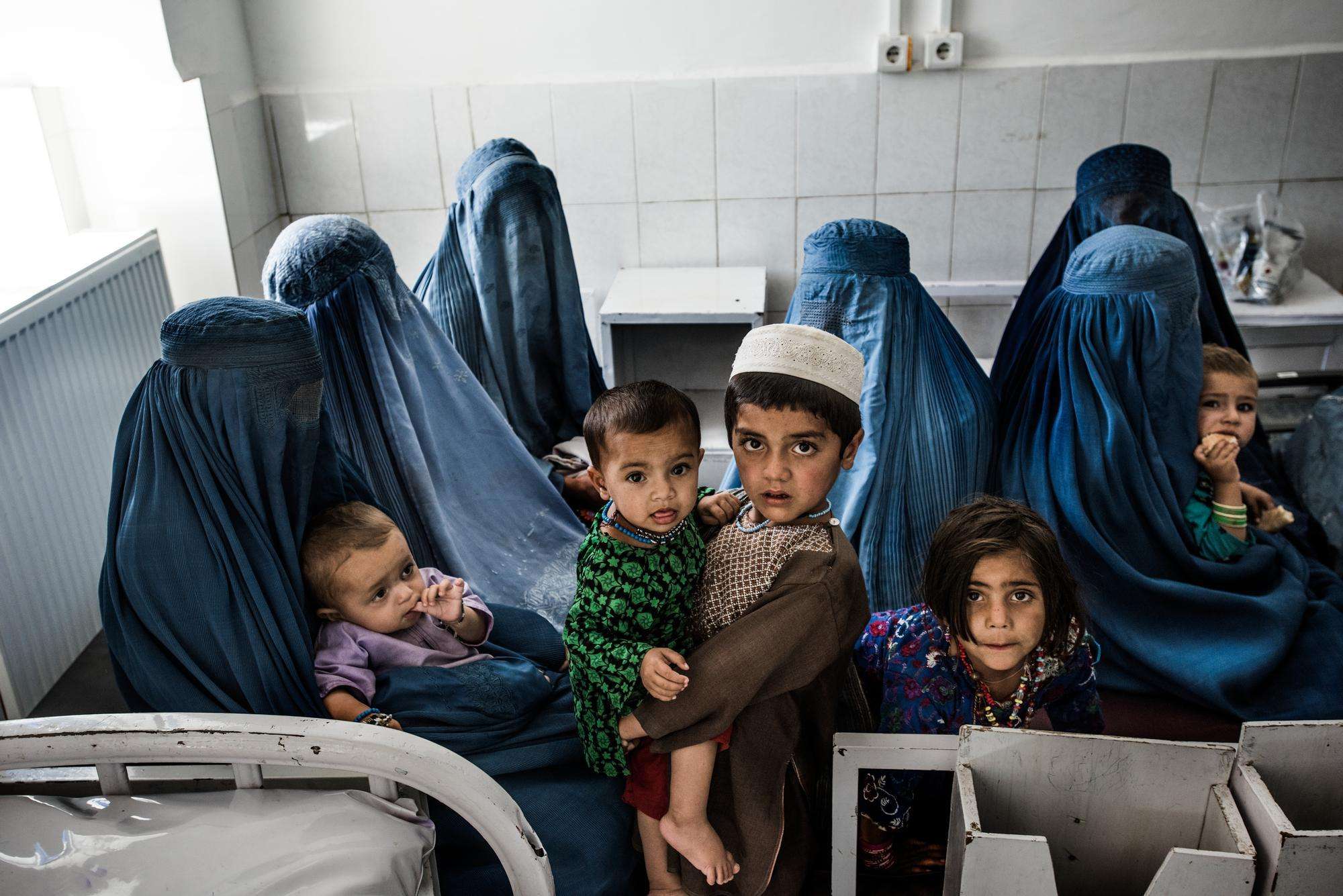Doctors Without Borders/Médecins Sans Frontières (MSF) teams are continuing to provide medical care across all five of our projects in Afghanistan: in Herat, Kandahar, Khost, Kunduz, and Lashkar Gah. MSF first started working in Afghanistan in 1980, and we have maintained vital health services even under the most challenging circumstances. Decades of armed conflict have left Afghanistan's economy and infrastructure in ruins, and millions depend on humanitarian assistance.
MSF is independent, impartial, and neutral. Our priority remains to provide medical care to the people who need it most.
We know that medical emergencies don't stop in times of conflict and upheaval. Here's a snapshot of our work in Afghanistan over 20 years.
2001: People of all ages wait for their medical consultations at the MSF clinic in Qeysar, a small mountainous village in Faryab province.

2004: A boy flies his kite outside Shamal clinic in the northern region of Pul-e-Khumri.
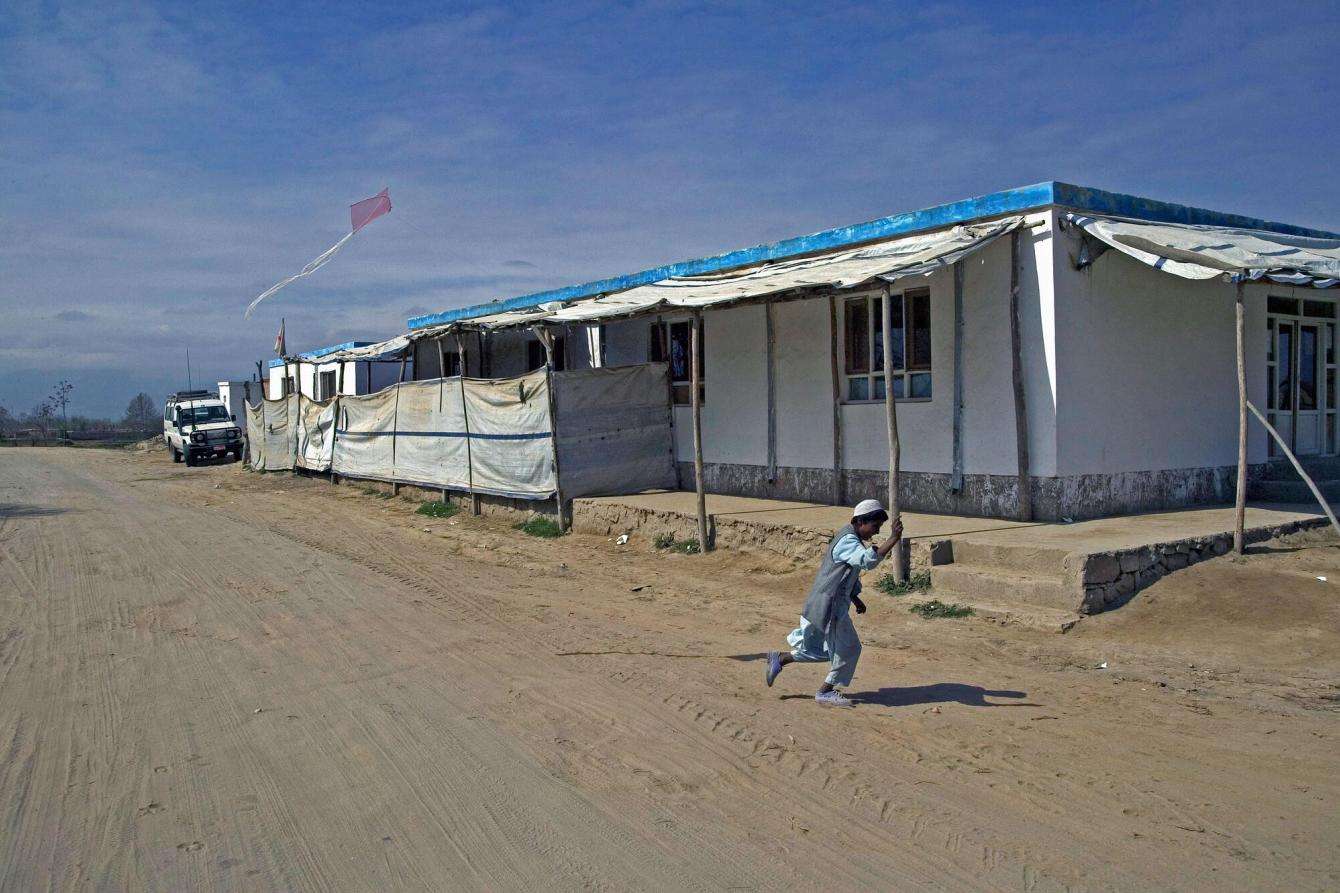
2011: An older man greets medical staff during rounds at the MSF trauma hospital in Kunduz, which had recently opened its doors to provide much-needed surgical care and physical therapy. The only trauma center of its kind in the region, it was destroyed by US airstrikes in 2015. MSF plans to reopen the trauma center this year. © Michael Goldfarb/MSF
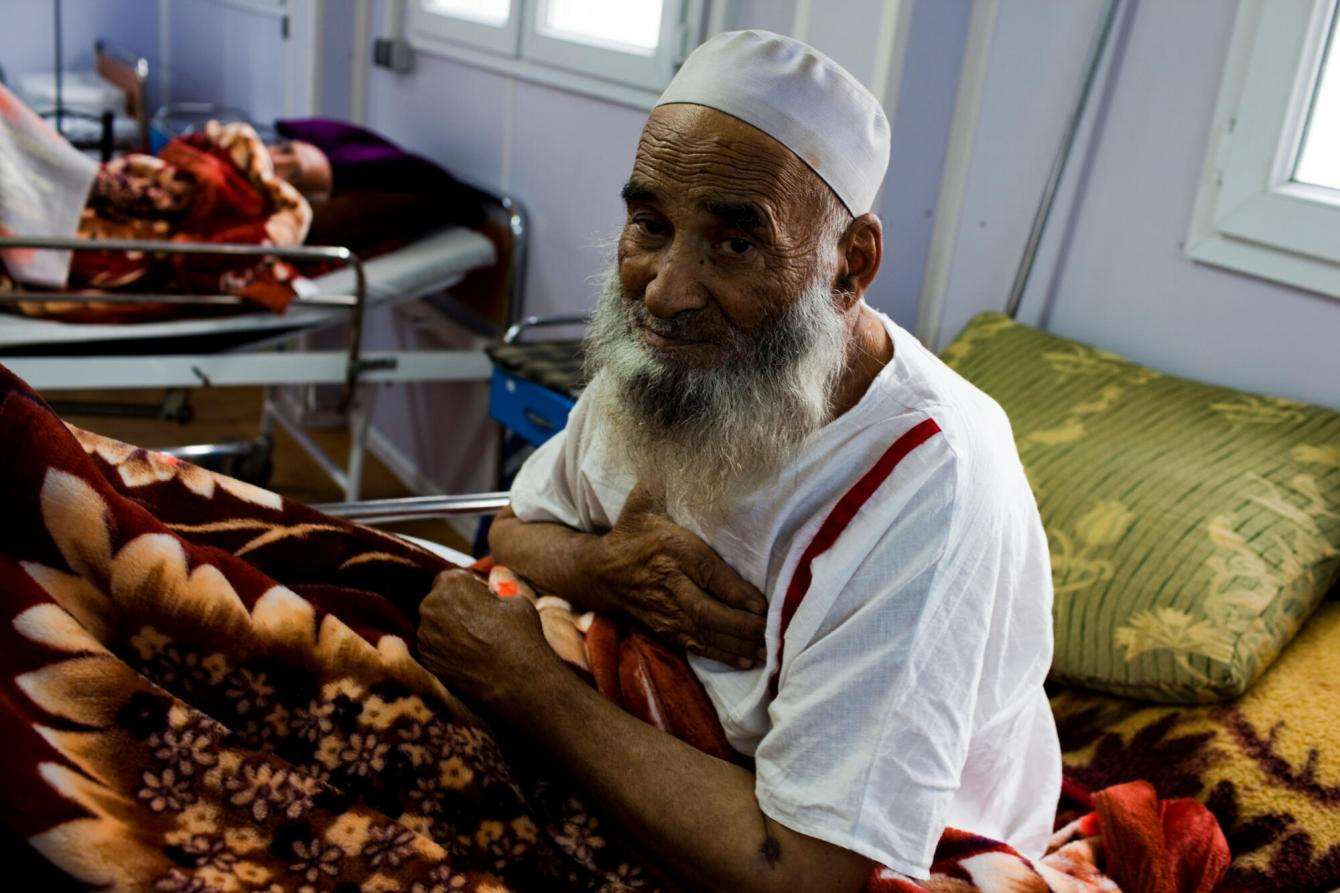
2014: A mother and son wait for medical attention at the Boost hospital emergency room in the southern city of Lashkar Gah, in Helmand province, during a time of increased severe malnutrition in the area. © Paula Bronstein
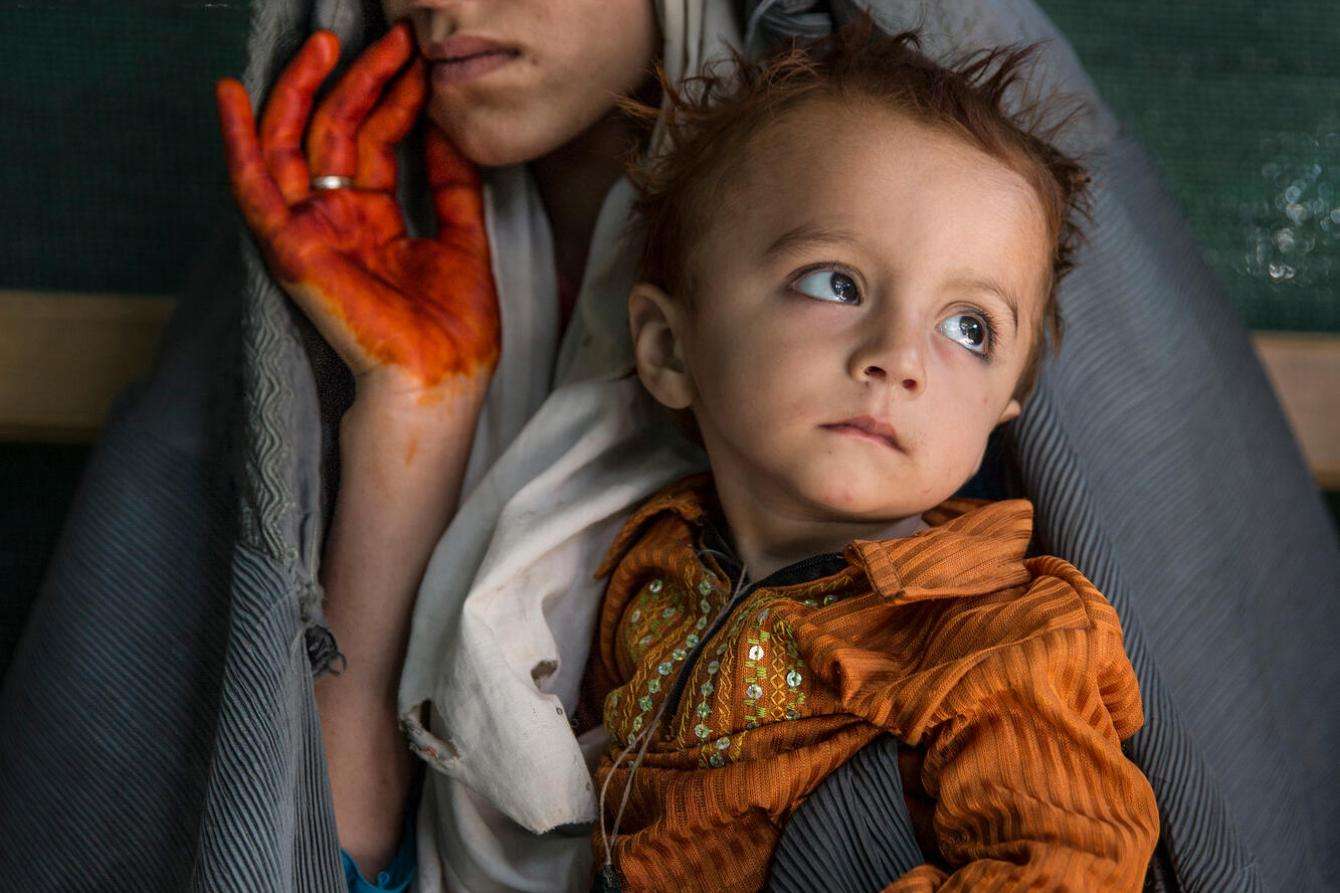
2016: An MSF physiotherapist looks over the X-rays of a 14-year-old boy with broken bones who is recovering from surgery at Boost hospital in Lashkar Gah.
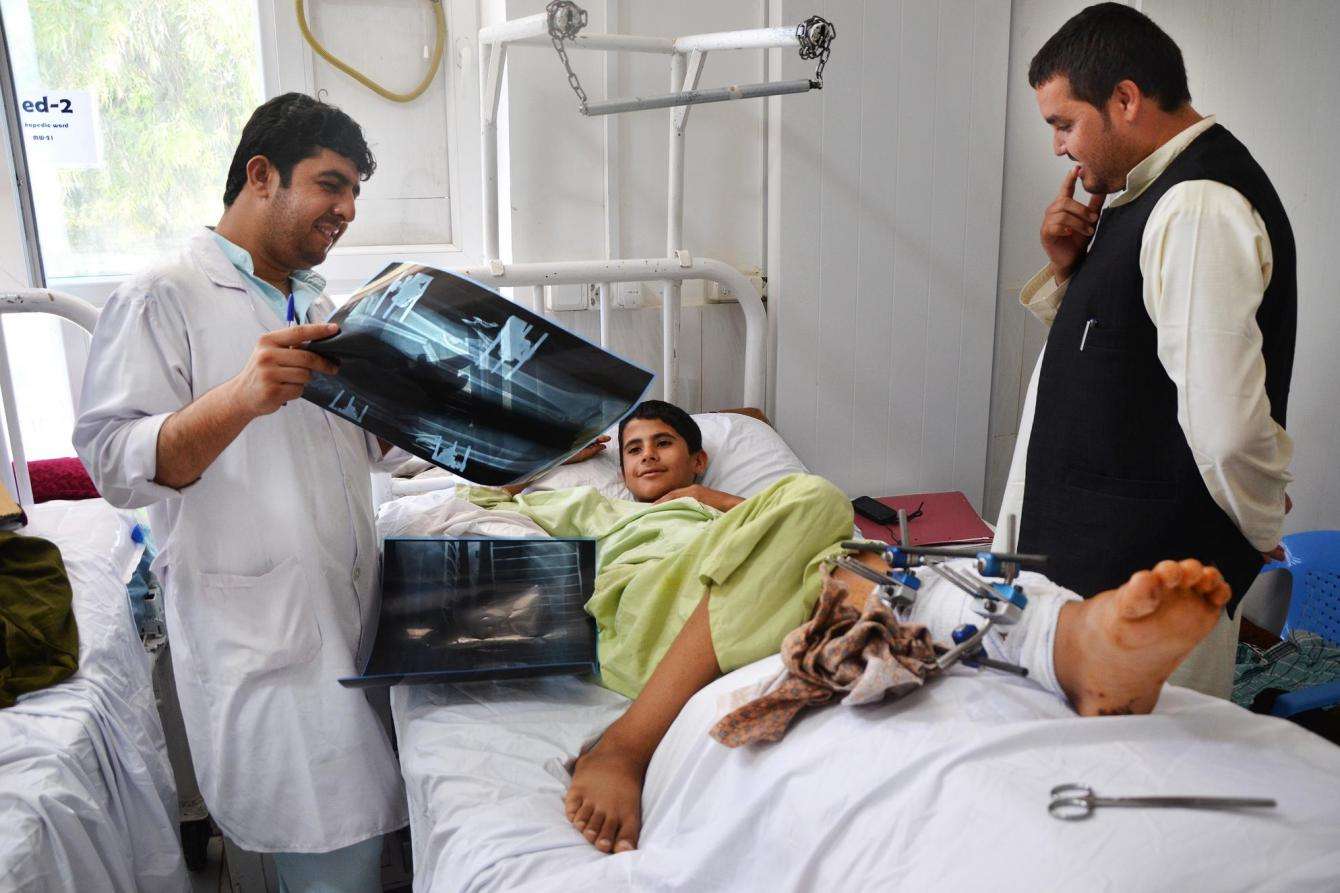
2017: Staff conduct a Caesarean section at MSF’s Khost maternity hospital, which opened in 2012 and is able to handle obstetrical emergencies 24 hours a day.
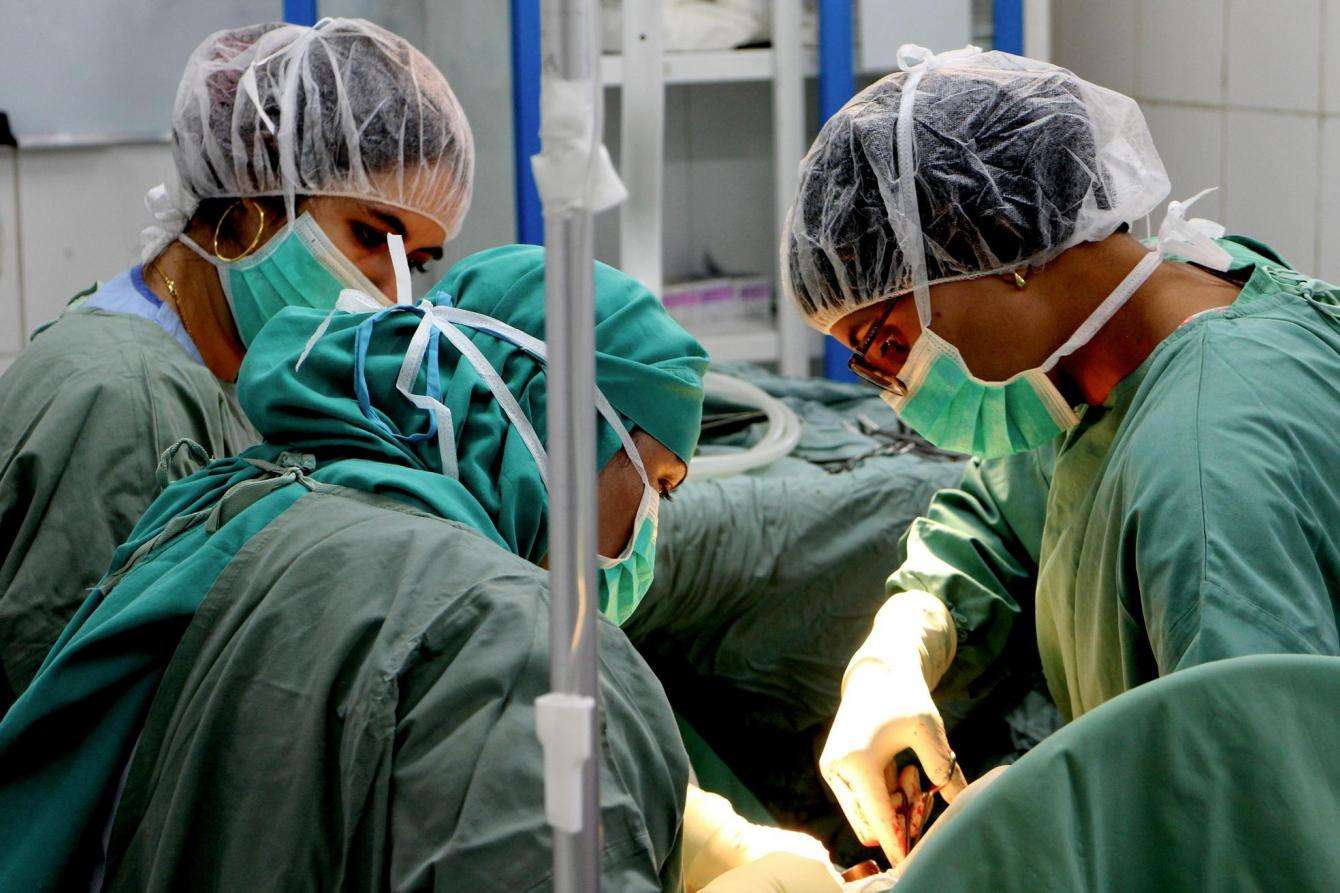
2018: A father and son displaced by conflict receive free medical care at an MSF clinic in the Kahdestan settlement on the outskirts of Herat. “I [first] took my son to a public hospital. But when doctors prescribe drugs, you have to buy them, and displaced people like us cannot afford them,” he says.
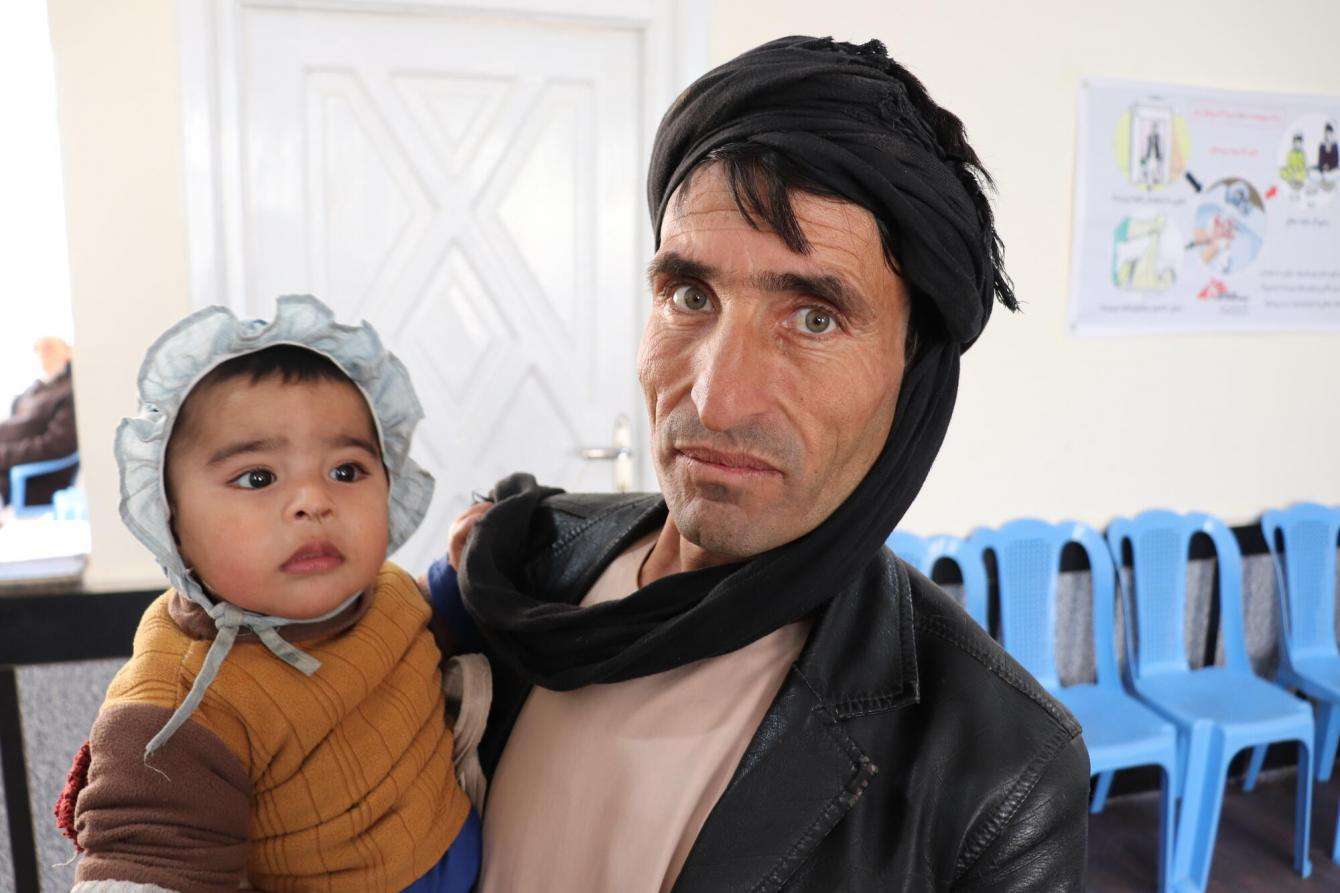
2019: A young couple hold their newborn baby at the Dasht-e-Barchi maternity ward in Kabul. MSF made the painful decision to withdraw from this hospital following an attack in May 2020, when gunmen stormed the maternity ward and killed women and children.
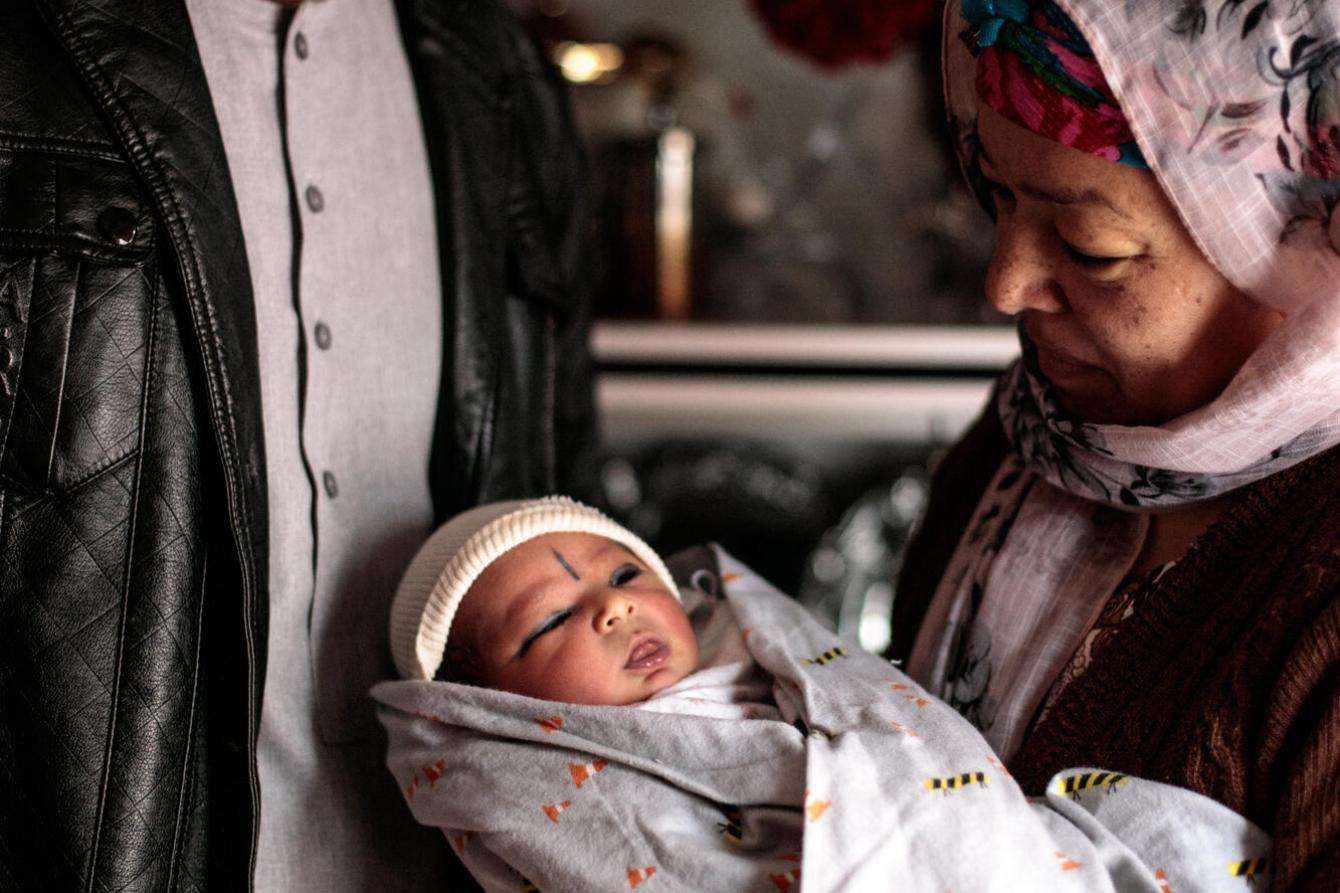
2019: People displaced by conflict and severe drought wait to be seen at a health clinic for displaced people in Kahdestan settlement on the outskirts of Herat. Afghanistan is among the countries most vulnerable to the effects of climate change, including the increased risks of drought and flooding.
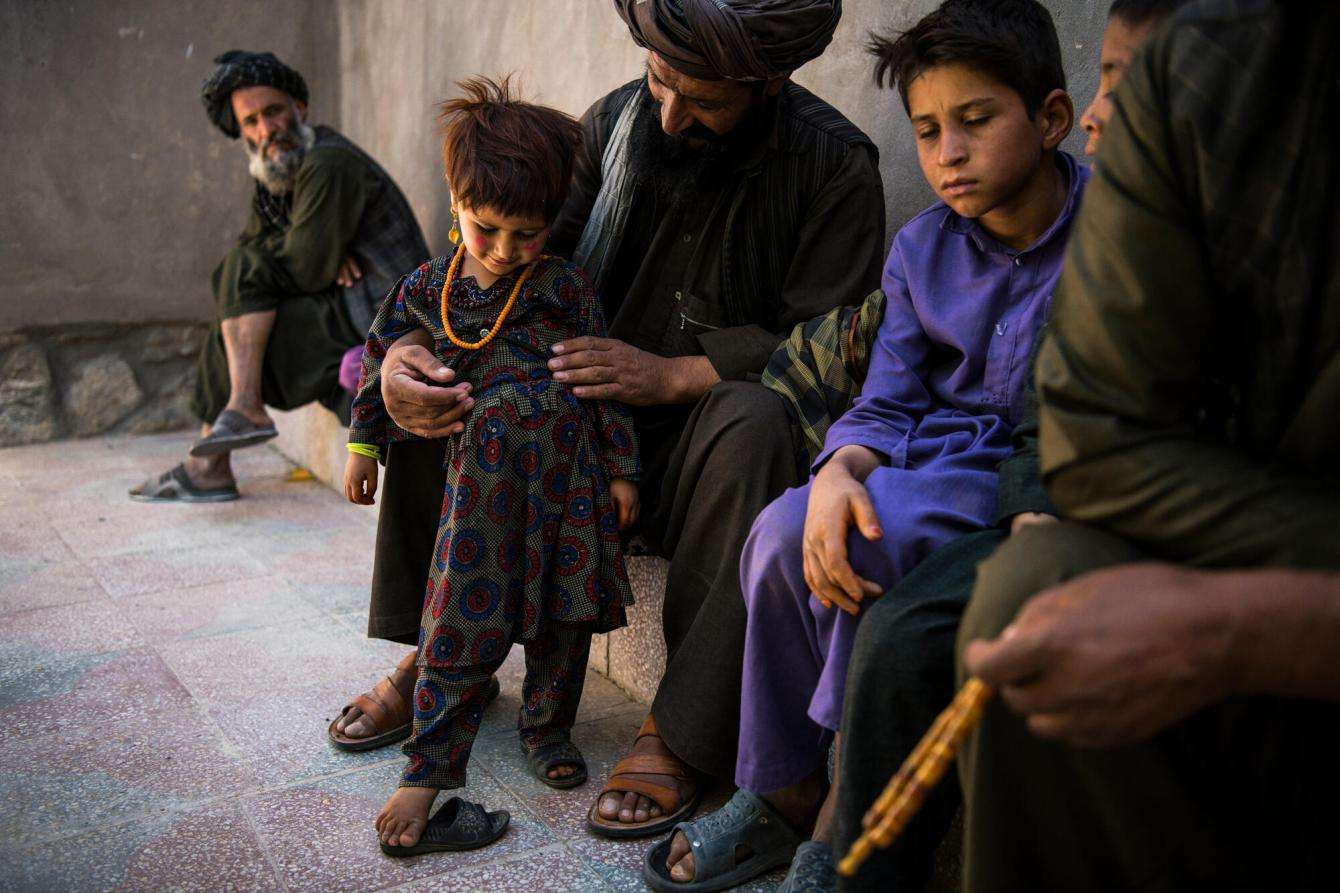
2020: MSF team members work side by side at the neonatal intensive care unit at Boost hospital, in Lashkar Gah, Helmand province. At the time, Boost hospital was among the biggest MSF runs worldwide, with 300 beds and more than 700 staff.
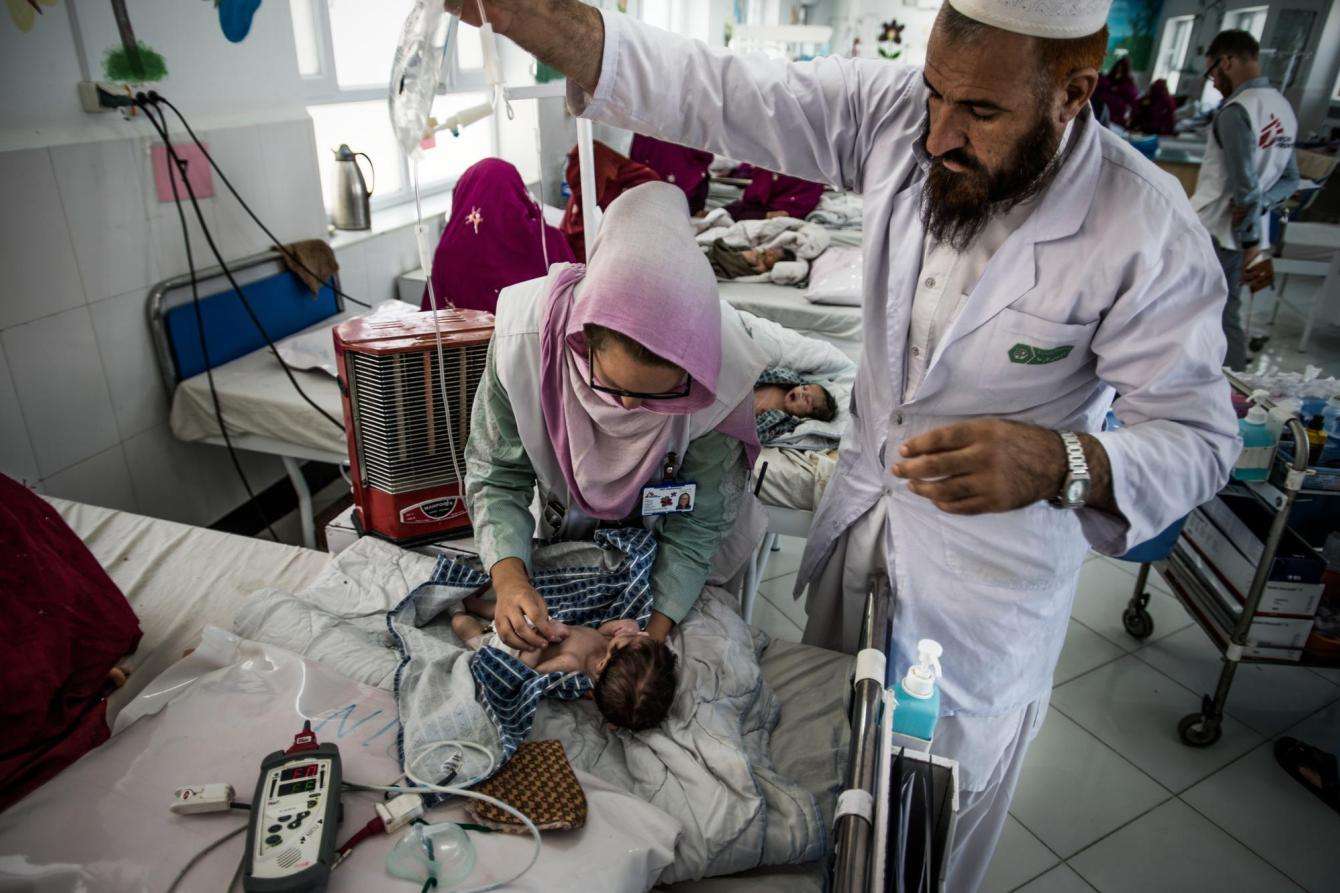
2020: Women and children gather in the female inpatient ward in Boost hospital, Lashkar Gah, Helmand.
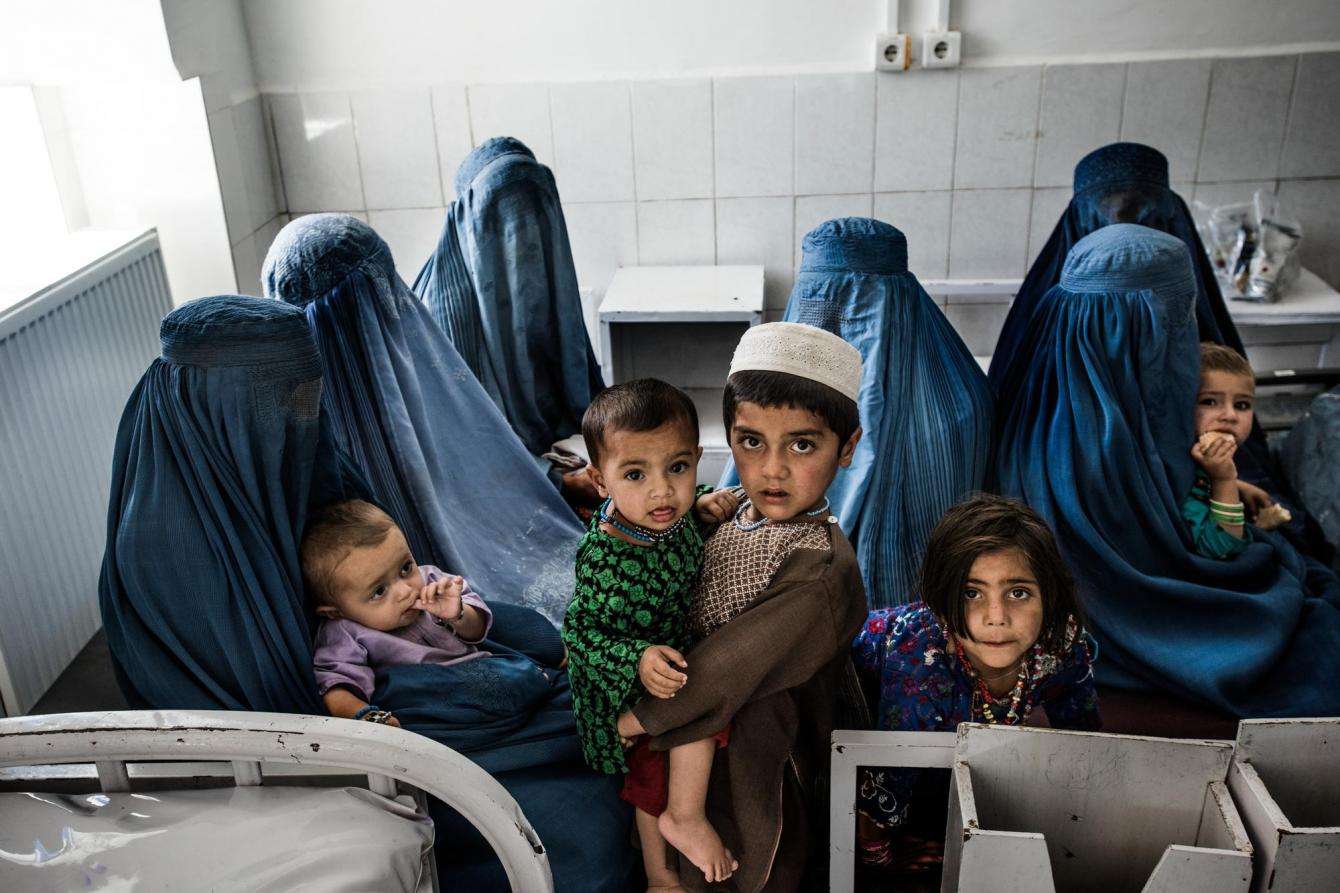
2021: A health promoter checks on a patient at MSF’s COVID-19 treatment center in Gazer Gah, Herat.
